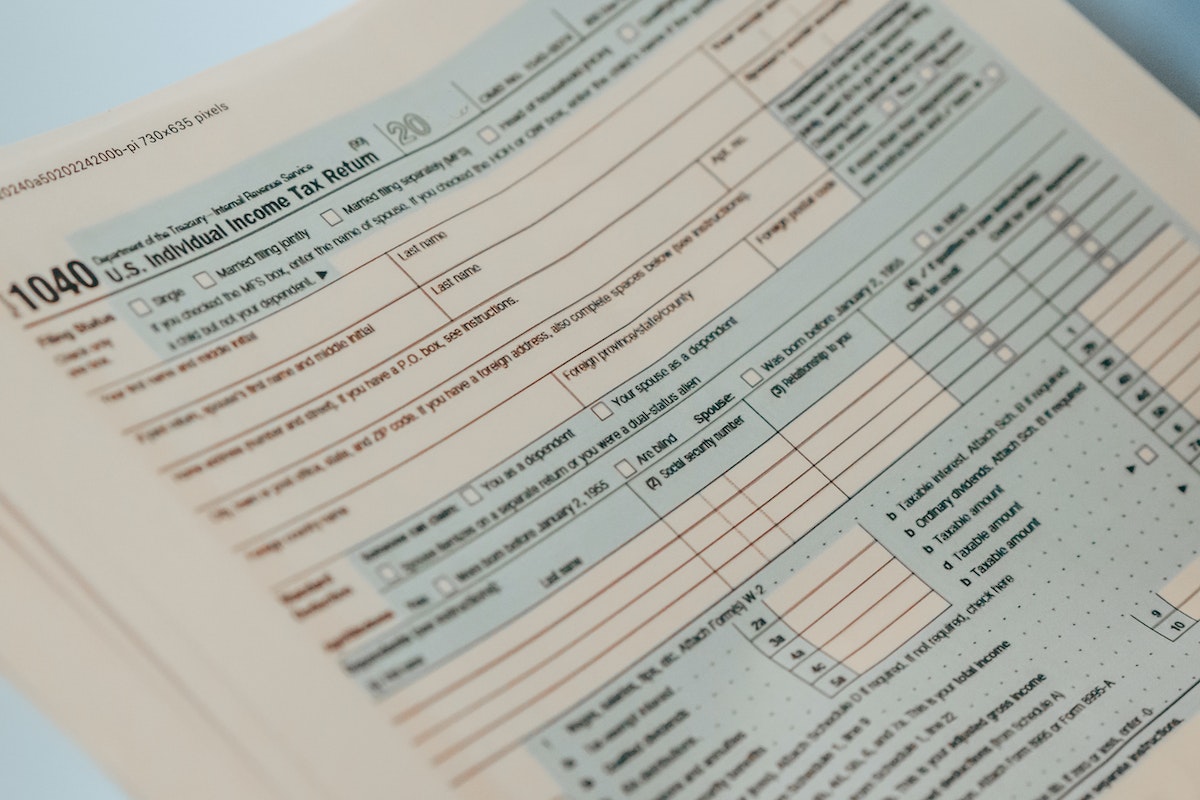Is Accounting a Good Career? Guide to Your Career Journey
Choosing a rewarding and stable career path is crucial in an ever-evolving job market. As per the Bureau of Labor Statistics forecast, employment in the business and finance field is expected to grow by 7% from 2021 to 2031. This figure indicates that seizing the opportunity to pursue this route can lead to remarkable career success.
Among the array of options, the role of an accountant shines brightly. Ranked 14th among the best business jobs in the world, it offers many professional growth and development opportunities. Considering the projected growth, the versatility of the field, and the assurance of stability, pursuing a career in accounting is an excellent choice for those seeking professional fulfillment, financial security, and a pathway to success in the business world.

What Is an Accountant?
An accountant is a financial professional who specializes in recording, analyzing, and interpreting financial information for individuals, organizations, and businesses. They play a crucial role in ensuring accurate financial records, managing budgets, preparing tax returns, and providing valuable insights for decision-making.
The life of an accountant typically involves a variety of tasks and responsibilities. They are responsible for maintaining and reconciling financial records, including accounts payable and accounts receivable, ensuring that all transactions are accurately recorded and categorized. Accountants also analyze financial data to identify trends, patterns, and discrepancies, enabling them to provide recommendations for improving financial performance and cost efficiency.
Accountants work in various settings, including accounting firms, corporations, government agencies, and non-profit organizations. They may also work independently as consultants or start their accounting firms.
How To Become an Accountant?
To become an accountant, several steps are typically followed. First, acquire a bachelor’s degree in accounting or a related field. This provides a solid foundation in accounting principles, financial management, taxation, and auditing. Consider pursuing advanced degrees like a Master’s in Accounting or obtaining professional certifications like Certified Public Accountant (CPA). Gain practical experience through internships or entry-level positions in accounting firms, corporations, or government agencies. This allows you to apply theoretical knowledge in real-world scenarios. To enhance employability, develop strong analytical, communication, and problem-solving skills. Finally, consider joining professional accounting associations for networking opportunities and staying updated on industry trends and regulations.
Pros of Accounting as a Career
- Job Stability: Accounting offers long-term job stability due to the constant demand for financial professionals. Businesses, organizations, and individuals will always need accountants to manage their financial affairs and ensure compliance with regulations.
- Career Growth Opportunities: The accounting field provides ample opportunities for career progression. With experience and additional certifications such as CPA, accountants can advance to managerial and executive positions, increasing their earning potential and responsibilities.
- Versatility and Transferability: Accounting skills are highly transferrable across industries, allowing accountants to explore diverse sectors or specialize in areas like tax, auditing, or financial analysis. This versatility opens doors to a wide range of career paths and opportunities for professional growth.
Cons of Accounting as a Career
- Long Working Hours: Accountants often face demanding work schedules, especially during peak seasons like tax season or year-end audits. This may result in long hours, increased workload, and potential work-life balance challenges.

- Highly Detail-Oriented: The accounting profession requires meticulous attention to detail and accuracy. Dealing with complex financial data and regulations can be mentally taxing, and mistakes can have significant consequences.
- Potential Monotony: Some individuals may find repetitive tasks and routine nature of accounting work monotonous over time. This can lead to a lack of job satisfaction for those seeking more dynamic or creative job roles.
Essential Skills and Qualifications Needed for Accounting
- Strong Analytical Skills: Accountants must possess excellent analytical skills to interpret financial data, identify trends, and generate meaningful insights for decision-making.
- Attention to Detail: Given the precision required in accounting, a keen eye for detail is crucial to ensure accuracy in financial records, calculations, and reports.
- Knowledge of Financial Principles and Regulations: A solid understanding of accounting principles, financial reporting standards, tax laws, and relevant regulations is essential for an accountant to perform their duties effectively.
- Proficiency in Accounting Software: Familiarity with accounting software and tools like QuickBooks, Excel, or specialized software is important for efficient financial record-keeping and data analysis.
- Communication Skills: Accountants need strong communication skills to effectively convey financial information, collaborate with colleagues, and provide advice or recommendations to stakeholders.
Different Career Paths in Accounting
- Public Accounting: Working in public accounting involves providing services such as auditing, tax planning and preparation, and consulting for various clients in accounting firms.
- Management Accounting: Management accountants work within organizations, analyzing financial data, preparing budgets, and providing financial insights to support strategic decision-making.
- Government Accounting: Accountants in the public sector handle financial management, budgeting, and auditing for government agencies at different levels.
- Internal Auditing: Internal auditors assess internal controls, risk management practices, and compliance within organizations to ensure efficient operations and identify areas for improvement.
- Forensic Accounting: Forensic accountants investigate financial fraud, analyze financial data for legal disputes, and provide expert witness testimony in legal proceedings.
Job Satisfaction and Fulfillment of Being an Accountant
Being an accountant can bring significant job satisfaction and fulfillment to individuals in various ways. First and foremost, accountants often derive satisfaction from their role in promoting financial stability. By ensuring accurate financial records, analyzing data, and providing valuable insights, accountants contribute to the overall financial health and success of organizations and individuals. This sense of purpose and impact on financial decision-making can be highly fulfilling.
Accounting also offers intellectual stimulation and opportunities for growth. The field is ever-evolving, with changing financial regulations, technological advancements, and industry trends. Accountants continuously learn and adapt to these changes, keeping their skills sharp and staying intellectually engaged. The analytical challenges that accountants face, such as problem-solving complex financial scenarios, provide a stimulating and intellectually rewarding aspect to the profession.
Moreover, career progression and development are significant sources of job satisfaction. Accountants have various paths for advancement, whether through obtaining professional certifications like CPA, pursuing managerial or leadership roles, or specializing in specific areas such as tax, auditing, or financial analysis. The opportunity to grow and take on increased responsibilities offers a sense of accomplishment and personal fulfillment.
Lastly, the role of an accountant often involves working collaboratively with colleagues and clients, which can foster a sense of camaraderie and teamwork. Building relationships, communicating financial information effectively, and providing valuable advice contribute to a positive work environment and job satisfaction.
So, Is Accounting a Good Career?
Yes, accounting is considered a good career choice for several reasons. It offers job stability due to the constant demand for financial professionals across industries. The field provides opportunities for career growth, whether through advancements to managerial positions or specialization in areas like tax, auditing, or financial analysis. Accounting also offers intellectual stimulation and the chance to make a meaningful impact by ensuring financial stability and providing valuable insights for decision-making. Furthermore, the field provides job satisfaction through intellectual challenges, opportunities for professional development, and the ability to work collaboratively. Overall, accounting offers a solid foundation for a rewarding and stable career path.
Accounting presents a promising career choice with its stability, growth opportunities, and potential for job satisfaction. The field’s constant demand ensures long-term prospects, while career progression and specialization options cater to individual ambitions. Accountants play a crucial role in financial management and decision-making, making their contributions both valuable and fulfilling.
Frequently Asked Questions
Is accounting a good career for the future?
Yes, accounting is a good career for the future. The demand for skilled accountants is expected to remain high, offering stability, career growth, and diverse opportunities in an evolving financial landscape.

Is accounting a stressful job?
Accounting can be a demanding and stressful job due to deadlines, long hours during tax season or audits, and the need for meticulous attention to detail. However, time management and a supportive work environment can help mitigate stress levels.
How do I know if accounting is for me?
You may be suited for accounting if you enjoy working with numbers, have strong analytical skills, attention to detail, and enjoy problem-solving. Consider internships or shadowing accountants to gain practical exposure.
What personality should an accountant have?
An accountant should possess traits like attention to detail, strong analytical skills, integrity, and an aptitude for problem-solving. They should be organized, disciplined, and possess excellent communication skills.
Do accountants need to be good at math?
While a strong foundation in math is helpful, accountants don’t need to be math prodigies. Basic math skills and proficiency in arithmetic, percentages, ratios, and basic algebra are sufficient.
